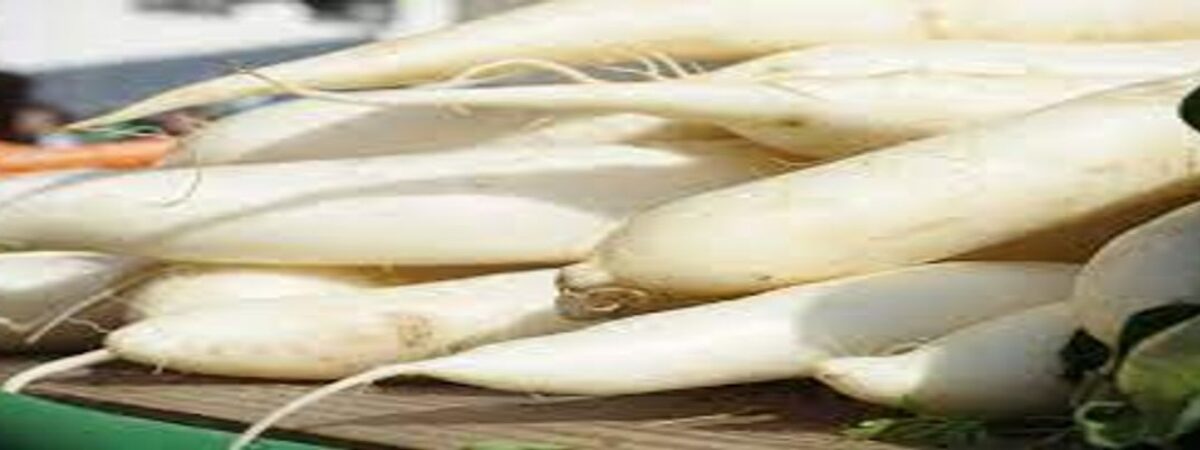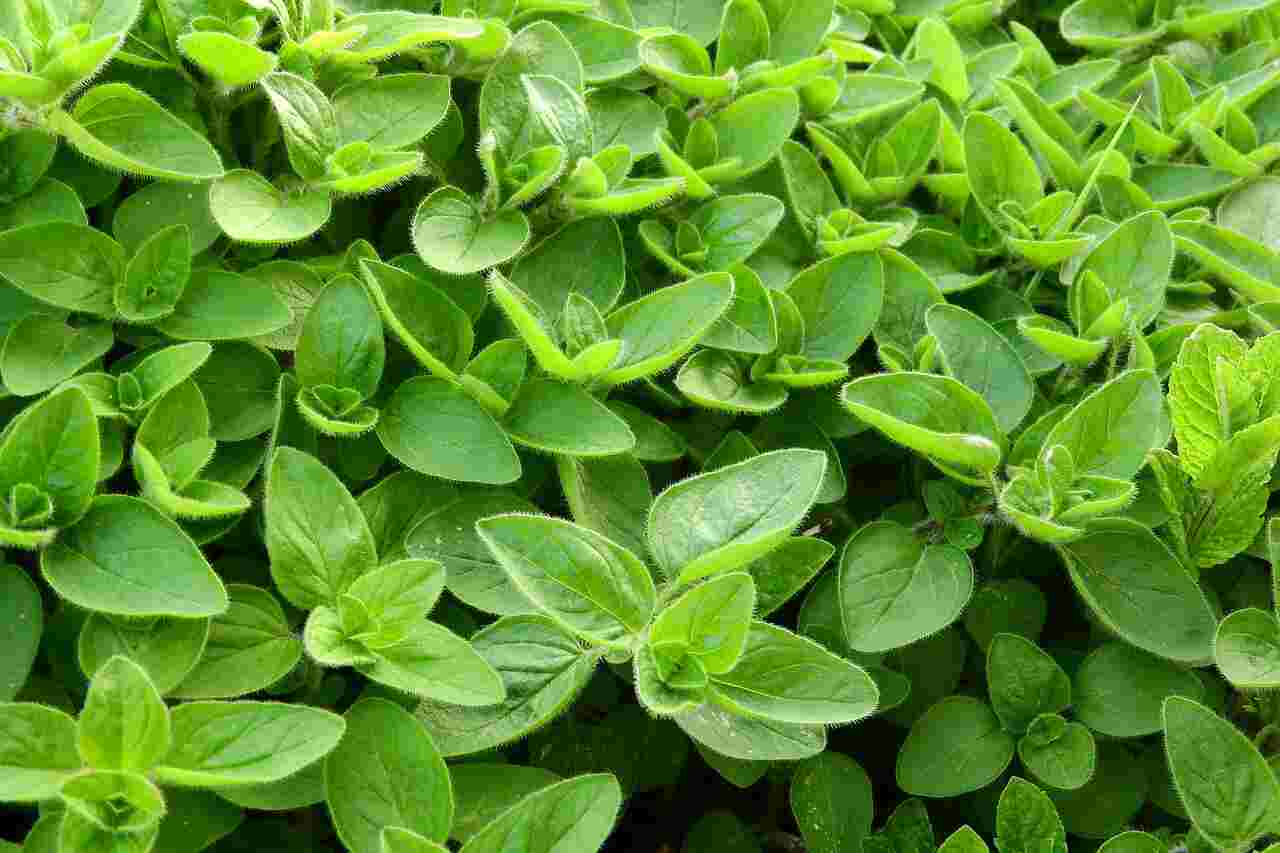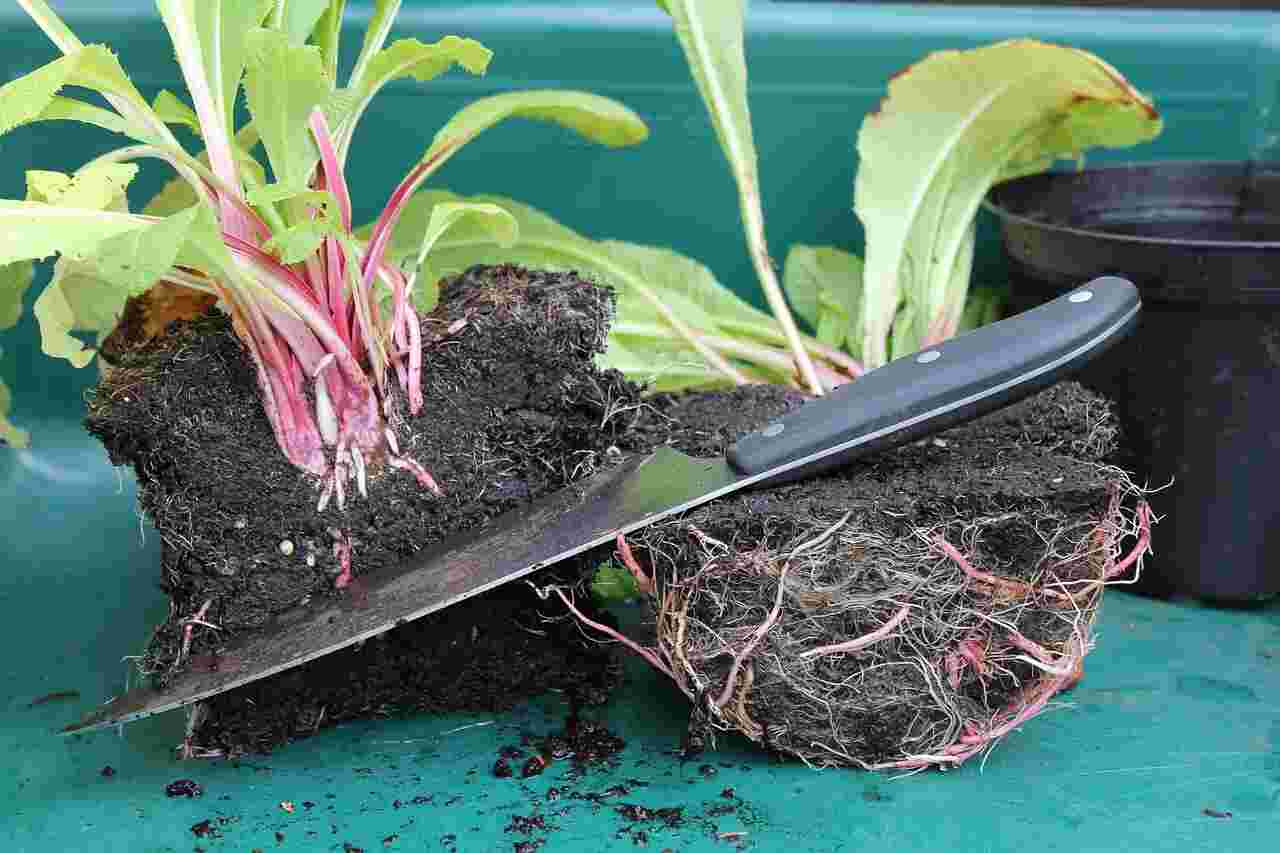Daikon radish Or scientifically named Raphanus sativus is a cruciferous vegetable that originated in Asia and Europe.
Daikon radish is referred to as the winter radish, which grows slowly and attains a larger size than spring radishes. This vegetable is sown in mid to late summer and harvested during cooler weather.
The nutritional content of daikon radish
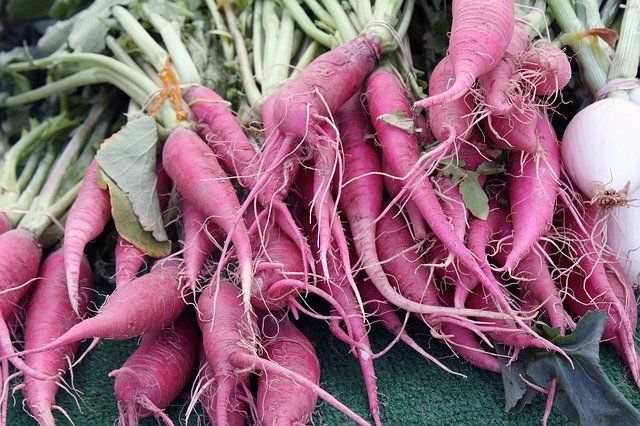
Daikon radish is a very low-calorie vegetable. However, it has an impressive nutrient profile.
Daikon radish is an excellent source of various nutrients, that includes calcium, magnesium, potassium, and copper. Still, it contains higher amounts of vitamin C and folate.
Vitamin C is a water-soluble nutrient that the daikon radish contains in higher amounts which are essential to health and required for many body functions, including immune system function and tissue growth and repair.
Apart from that, it doubles as a powerful antioxidant, protecting your body’s cells from oxidative damage.
Daikon radish is also rich in folate, a vitamin B that’s involved in cellular growth, red blood cell production, and DNA synthesis. Foods that are rich in folate are particularly important during pregnancy, as this nutrient plays an important role in the growth and development of the baby. So daikon radish can be used in the diet of pregnant Lady and small babies.
Nutritional benefits of daikon radish
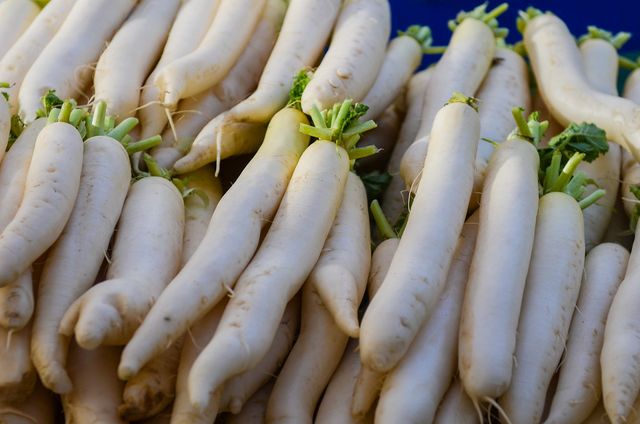
Promotes weight loss
Being daikon radish is a low-calorie, high-fiber food, it can help you maintain a healthy weight or lose weight if that’s your goal.
Daikon is considered to be a non-starchy vegetable which means it’s very low in carbs. Research has demonstrated that eating non-starchy vegetables like this can promote a healthy body weight.
For example, research on 1,197 people found that those people who ate more non-starchy vegetables had less body fat and lower levels of insulin, a hormone involved in fat storage.
Apart from that, daikon radish is high in fiber, a nutrient that may decrease hunger levels by slowing digestion and increasing fullness, which may help boost weight loss.
Improve digestion
Daikon radish is an essential vegetable that promotes digestion in our bodies. The juice of the daikon may also have been shown to possess similar enzymes to those found in the human digestive tract, including amylase and esterase.
These enzymes facilitate the more efficient digestion of complex carbohydrates, proteins, and fats. It might help to prevent constipation and increase nutrient uptake efficiency in the gut.
Research published in the Journal in 2019 of Food & Nutritional Sciences found that pairing animal protein with nutrient-rich vegetables like daikon radish can facilitate the process of digestion of protein and increase the metabolic bioavailability in the body.
Daikon radish possess antibacterial properties
Daikon radishes show significant antibacterial and antiviral properties. Various laboratory experiments have shown that the extract of this vegetable may display strong antibacterial activity against a host of diseases causing microbes like Hafnia alvei, Lactobacillus, and Bacillus thuringiensis as well as fungal species such as Penicillium lilacinum.
Because of its antimicrobial properties, daikon is proven to be very effective in treating illnesses like respiratory issues.
The excess phlegm or mucus in your respiratory tracts have the potential to capture bacteria and allow it to grow. Daikon juice clears out phlegm and eliminates bacteria and other pathogens. Thus it keep your respiratory system healthy.
Used in skincare
Apart from all the healthcare and nutritional value, daikon has a significant role in skin care.
Daikon radish oil is relatively scarce but can apply it directly to the skin which helps to treat anti-aging effects. Similar results are also experienced when you consume daikon directly.
The antioxidant properties of this healthy vegetable help to prevent the effects of free radicals, which are the harmful by-products of cellular metabolism. It might be able to prevent wrinkles, improve skin glow, increase circulation to the skin, and even reduce the appearance of blemishes and age spots.
Radish is a cruciferous vegetable.
Protect you from chronic diseases
Daikon radish has numerous health benefits. One of the best health benefits is it protects us from chronic diseases. Some studies have shown that eating more cruciferous vegetables like daikon radish may help protect against some cancers, such as lung cancer.
Research of over 100,000 adults in China found that eating more cruciferous vegetables may help to protect against heart disease and help you to live a longer life. So if you have any heart diseases, have a daikon radish dish on your plate.
Strengthen the bones
Daikon, like other cruciferous vegetables, is a rich source of calcium. As you know calcium is essential for bones, the daikon radish helps to prevent osteoporosis and other ailments that plague our bones when we start getting old.
Adding some daikon radish to your diet will surely slow down the aging effect on your bones and help you to lead a normal and healthy life.
Boosts immunity
As per the USDA, daikon radish contains vitamin C in a greater amount. The contents of vitamin c in daikon may amount to 22 mg per 100 g. This amount of vitamin C also may make daikon ideal for your immune system.
Having daikon radish in your diet can stimulate the production of white blood cells in the blood. It also speeds up the healing and repair of the cells and tissues throughout the body.
Apart from the daikon fruit, the daikon leaves might also be the richest source of vitamin C. So if you want a health boost and strong immunity power, have a daikon leaf salad with some daikon juice on the side.
Bottom line
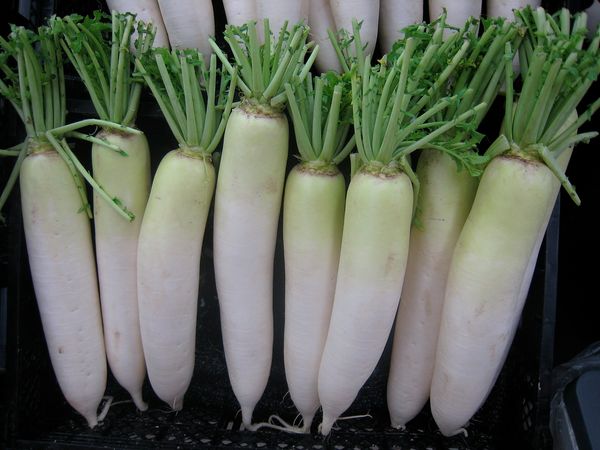
Daikon radish is a very nutritious, low-calorie vegetable that may promote health in various ways.
Keeping it in your diet may help you maintain healthy body weight and protect against various chronic conditions, such as heart disease and certain cancers.
It is not only an exceptionally healthy vegetable but also incredibly versatile in growing. The growing and caring guide of daikon are very easy.
So try to add this unique radish to salads, stir-fries, and curries, or simply enjoy it raw as a snack and have its health benefits.
You may also like to read

